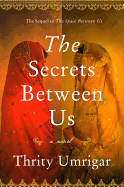Len Riggio at BookExpo: Bookselling Not a 'Zero-Sum Game'
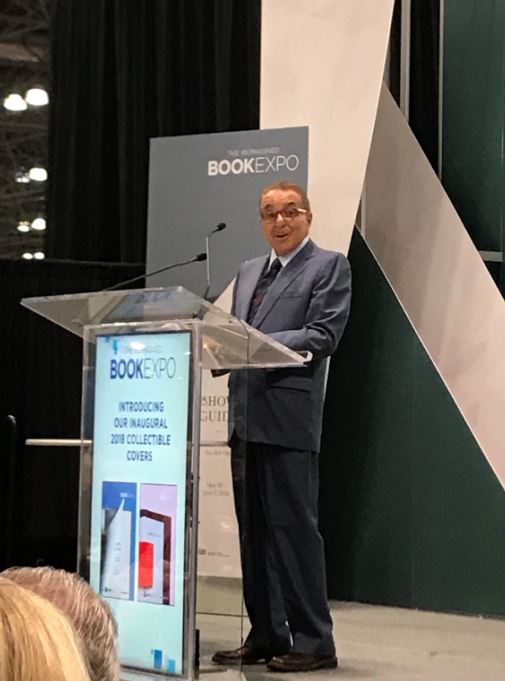 |
|
| Len Riggio at BookExpo | |
"No one is more pleased than I am that independent bookstores are opening their doors again," said Len Riggio, Barnes & Noble's executive chairman, during his opening address on the first day of BookExpo 2018 in New York City. "I do not see them [indie bookstores] as being in mortal competition with Barnes & Noble, any more than we were in mortal competition with them when we were opening 50 stores each year."
Throughout his keynote address on Wednesday morning, Riggio emphasized that there "could never be too many bookstores in America," including everything from large and small independent bookstores to superstores and even airport book kiosks. He said the industry needs to "open more bookstores than we close, and Barnes & Noble intends to do its part." Individually and collectively, bricks-and-mortar stores are better than any search engine or online platform in terms of creating demand for books. More bookstores equal more demand, and more bookstores "lead to a more informed public and a healthier and more upwardly mobile society."
He added: "Opening bookstores is always a good thing. Mortal combat it is not."
Riggio also strove to "expose the persistent mythology which holds that selling books is a zero-sum game," saying that having two bookstores in a single market will create more total demand for books, and should one of those stores close it will "surely reduce demand," without the other store simply gaining those sales. He recalled that when Borders Books & Music closed in 2011, Barnes & Noble did see some increased sales, especially at locations that were right across the street from Borders stores, but not equal to the amount of all of Borders's lost sales. The chain's closure was a "net loss" to the industry and "not a cause for celebration."
"In fact, of the hundreds of stores where we shared proximity to Borders, we hardly picked up 30% to 40% of their business," said Riggio. "So 60% to 70% of their business went poof."
At the same time, Riggio continued, when independent bookstores have opened in markets with existing Barnes & Noble locations, the stores have seen a small loss in sales but not near the amount of total business that the new indies are doing. While he acknowledged that he "would rather not have independent stores in all of our parking lots," he said the proliferation of new stores still amounts to a "net gain to the society and a net gain to the publishing industry."
Discussing his early days in the book industry and the paperback revolution, Riggio admitted that although he liked to think of himself as an agent of change, "wrestling this change in the bookselling world was one of the easiest undertakings of my career." All it took to be successful, he said, was to give customers what they asked for, and they were asking for paperback books. The new format allowed working class people to afford books, and featuring "paperback books in our stores later became my obsession."
"Years later I was accused of being a mass-marketer," Riggio said. "And even though we carried 100,000 titles in our superstores, some said we homogenized bookselling and thereby limited choices. I never did understand that logic."
Riggio also warned against the rising cost of paperback books, pointing out that when he got started in bookselling, they were only 1.5 times the hourly minimum wage. Today they stand at 2.5 times the hourly minimum wage, and he wondered how "sustainable" that can be in an era when Google promises "all the world's information for free." He asked too whether the industry could afford to go back to a time and a place when "physical books can only be afforded by the carriage trade" and whether we've "already arrived at that place."
He implored publishers to continue to serve the mass market, saying it was of "critical importance to the future of our industry." Books at mass market serve as a "gateway to a lifetime of reading" for many and especially for younger people, who need to learn "the joys of reading books." He warned that the "laws of supply and demand will always hold," and that as more prices go up, fewer books will be sold, and more of those will be sold online.
Riggio said that while the bookselling industry has so far managed to weather every storm that was supposed to finish it off, from television to digital books, the industry should "keep the cork on the bottle of champagne for now," as technology remains "perpetually at its infancy." And though he couldn't say what the book business of the future will look like, he said "the degree to which we grow and prosper will depend on how nimble we all are," and "the degree to which we can create change."
American Booksellers Association CEO Oren Teicher, who introduced Riggio before the keynote, remarked that "not so long ago" it would have been "impossible to imagine" an ABA executive getting on stage to welcome the head of Barnes & Noble. But, Teicher said, they now "stand together in common cause" to promote and support bricks-and-mortar bookstores, and he reiterated the point that a healthy, thriving Barnes & Noble is in the "long term interest of the overall book business." --Alex Mutter









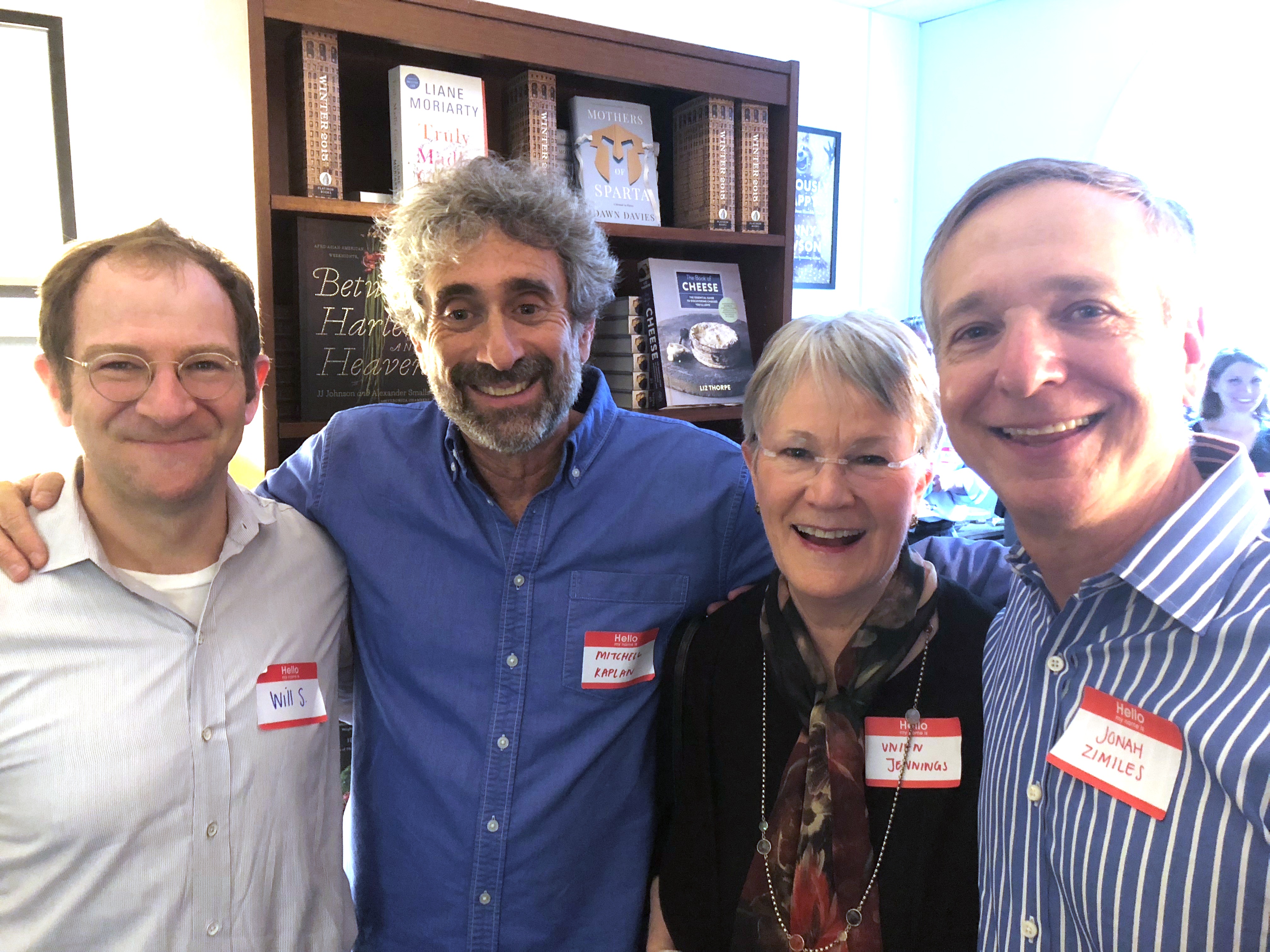 At Flatiron's BookExpo Eve party: Will Schwalbe; Macmillan executive v-p, editorial development and content innovation; Mitchell Kaplan, Books & Books, Miami, Fla.; Vivien Jennings, Rainy Day Books, Fairway, Kan., Jonah Zimiles, [words], Maplewood N.J.
At Flatiron's BookExpo Eve party: Will Schwalbe; Macmillan executive v-p, editorial development and content innovation; Mitchell Kaplan, Books & Books, Miami, Fla.; Vivien Jennings, Rainy Day Books, Fairway, Kan., Jonah Zimiles, [words], Maplewood N.J.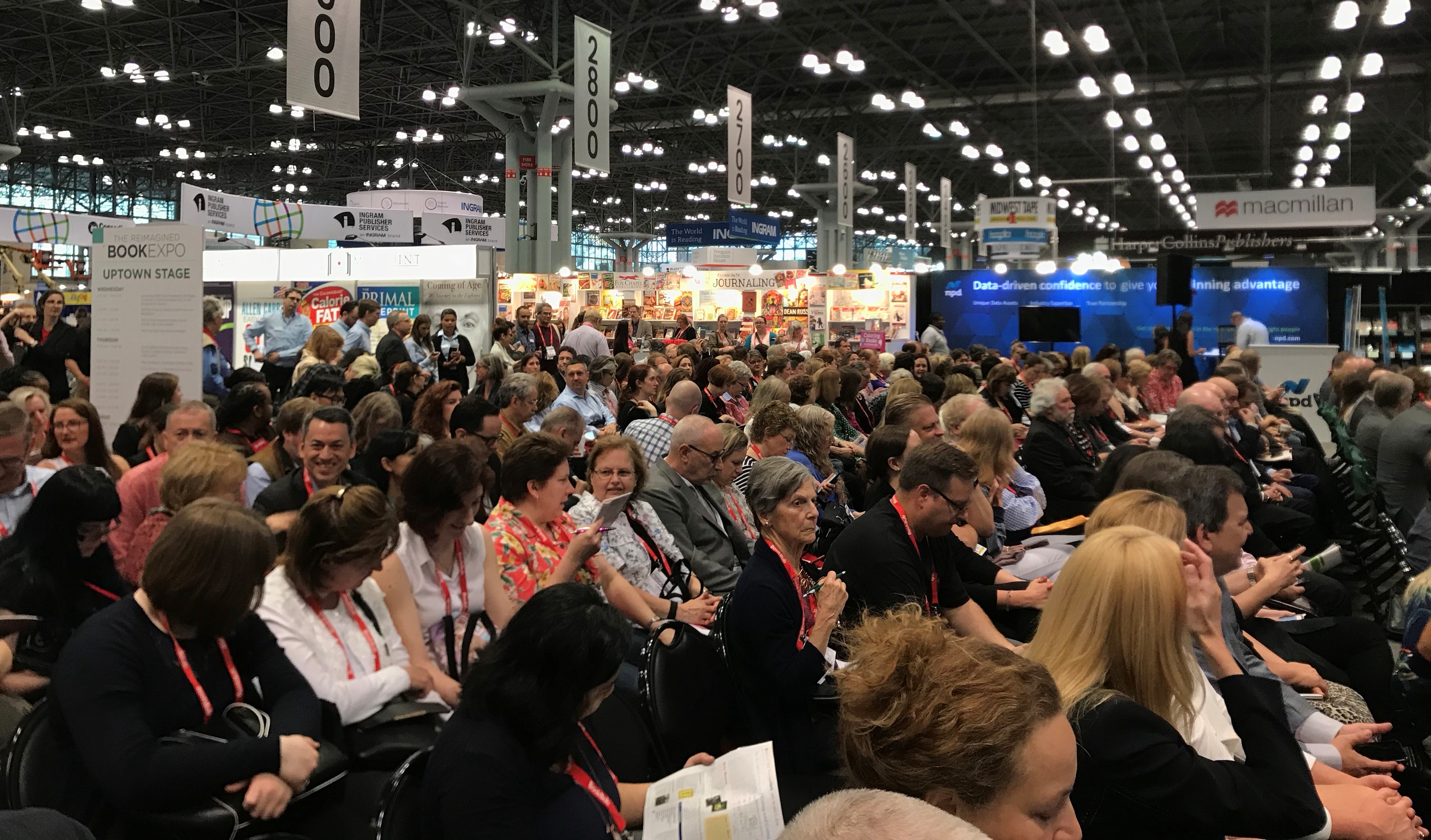 Barnes & Noble executive chairman Len Riggio drew a crowd for his opening address on the first day of BookExpo 2018.
Barnes & Noble executive chairman Len Riggio drew a crowd for his opening address on the first day of BookExpo 2018.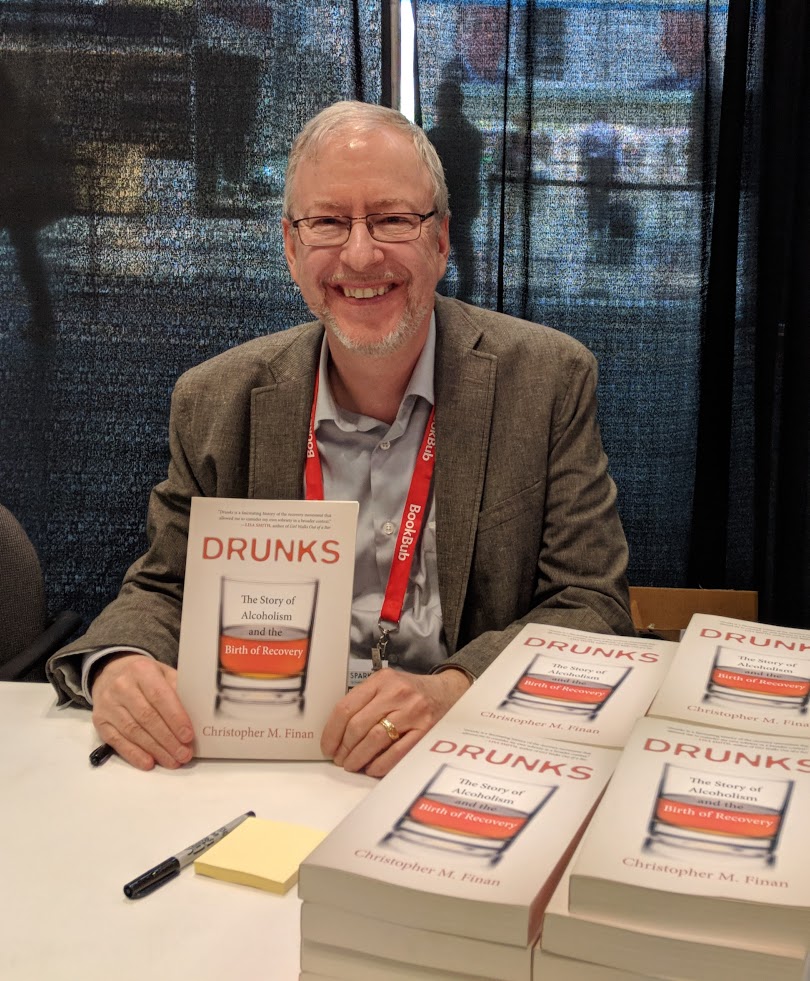
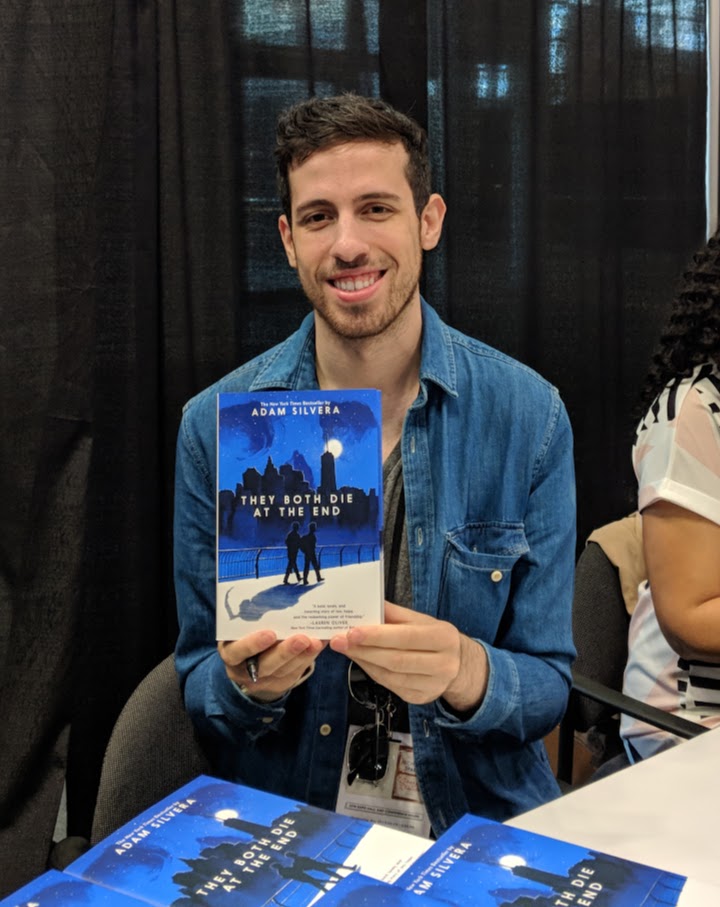
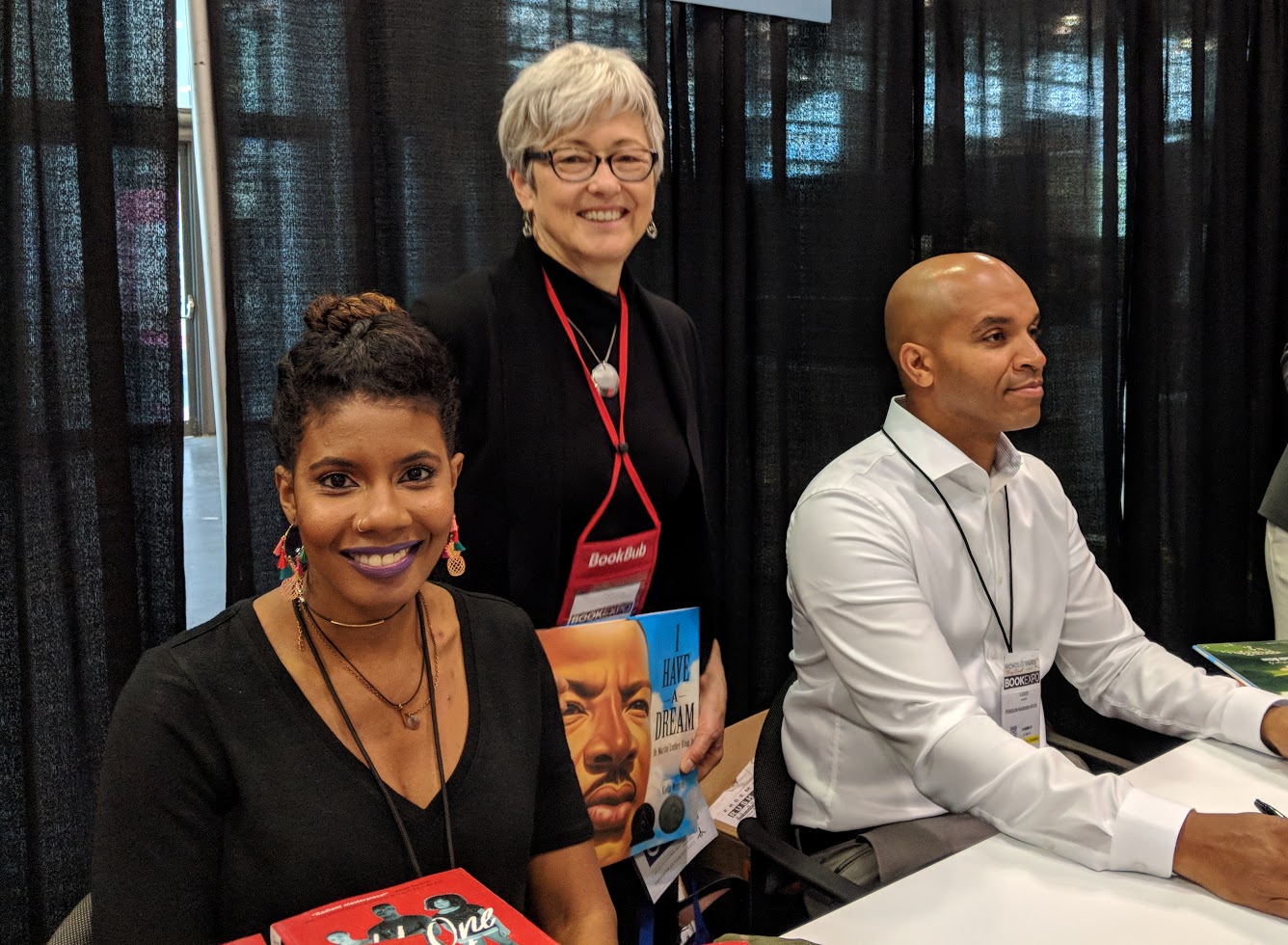 More authors in the ABA Lounge: Nic Stone (l.), author of the YA novel Odd One Out (Crown) and Kadir Nelson (r.), illustrator of I Have a Dream (Schwartz & Wade), with ABA Board member Kris Kleindienst, co-owner of Left Bank Books in St. Louis, Mo.
More authors in the ABA Lounge: Nic Stone (l.), author of the YA novel Odd One Out (Crown) and Kadir Nelson (r.), illustrator of I Have a Dream (Schwartz & Wade), with ABA Board member Kris Kleindienst, co-owner of Left Bank Books in St. Louis, Mo. 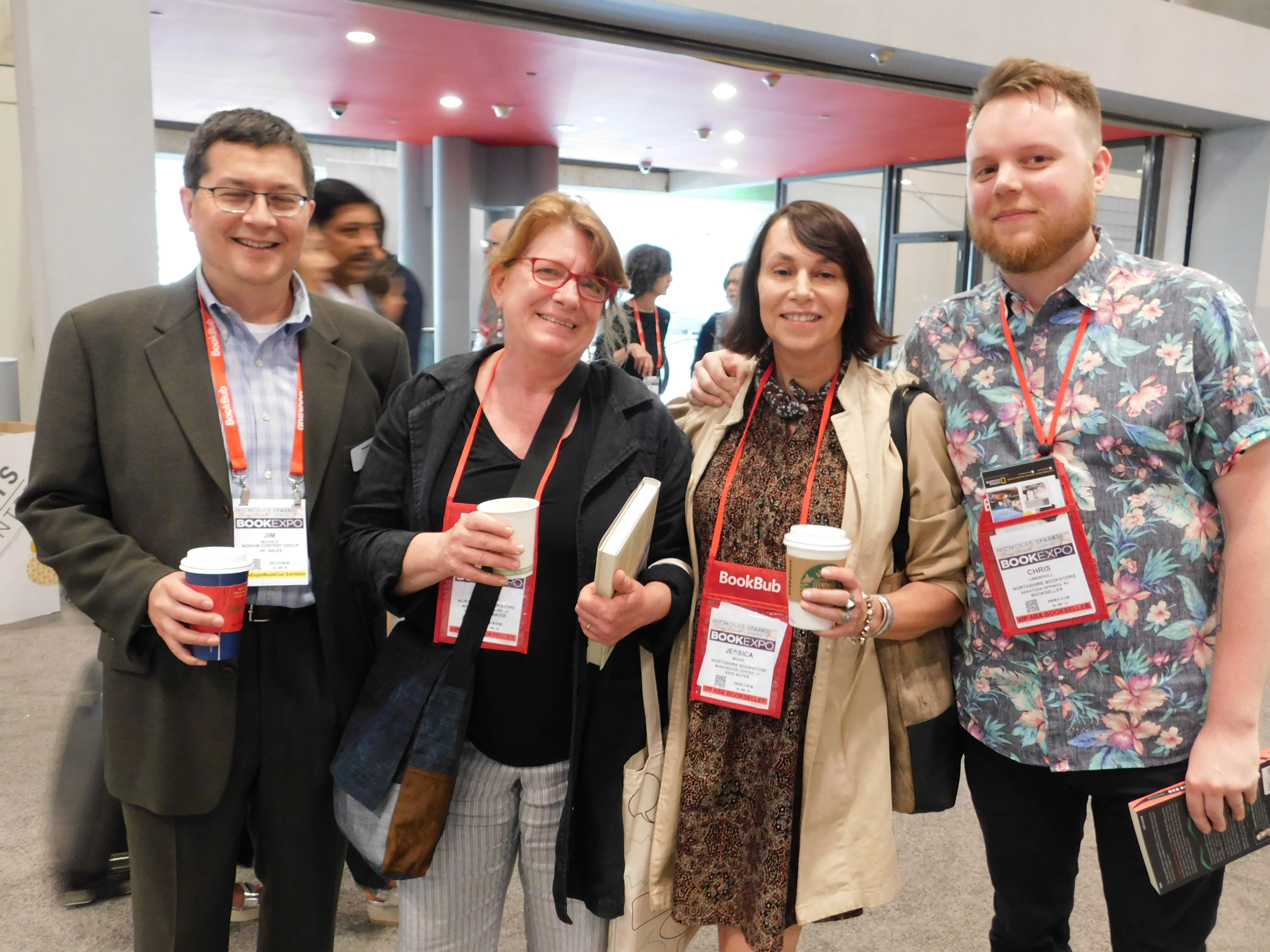 Stopping for a moment yesterday near the PGW aisle (l.-r.): Jim Nichols, v-p, sales, Consortium Book Sales & Distribution, with Nancy Scheemaker, Jessica Wood and Chris Linendoll of the Northshire Bookstore, Manchester Center, Vt., and Saratoga Springs, N.Y.
Stopping for a moment yesterday near the PGW aisle (l.-r.): Jim Nichols, v-p, sales, Consortium Book Sales & Distribution, with Nancy Scheemaker, Jessica Wood and Chris Linendoll of the Northshire Bookstore, Manchester Center, Vt., and Saratoga Springs, N.Y.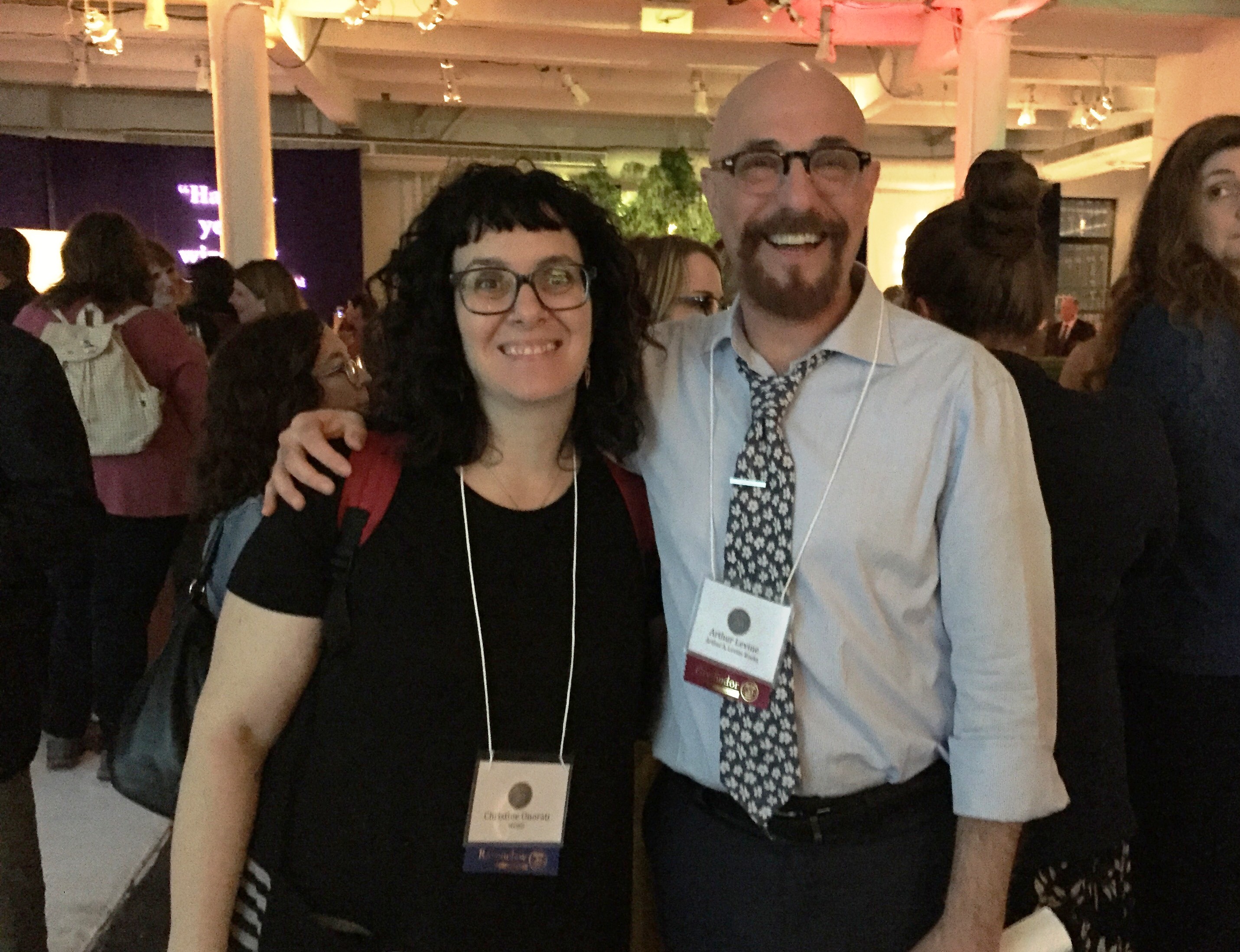 At Scholastic's celebration of 20 Years of Harry Potter: Christine Onorati, owner of WORD Bookstore, Brooklyn, N.Y., and Jersey City, N.J., and Scholastic's Arthur A. Levine.
At Scholastic's celebration of 20 Years of Harry Potter: Christine Onorati, owner of WORD Bookstore, Brooklyn, N.Y., and Jersey City, N.J., and Scholastic's Arthur A. Levine.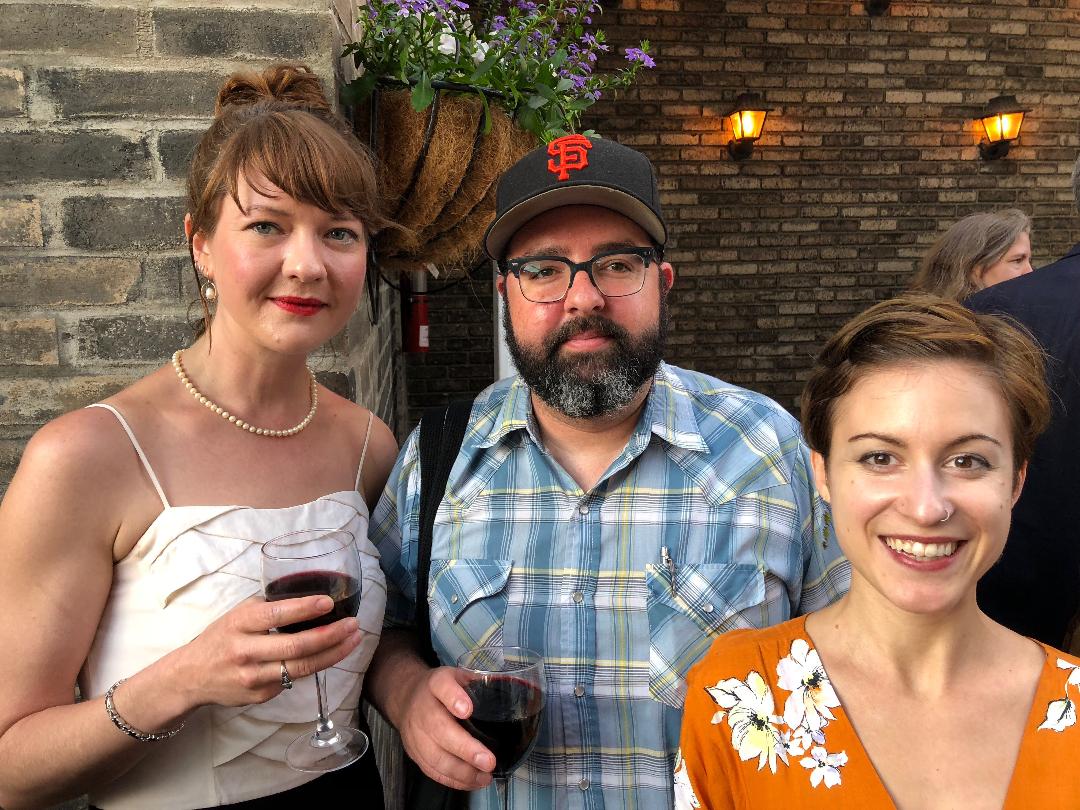
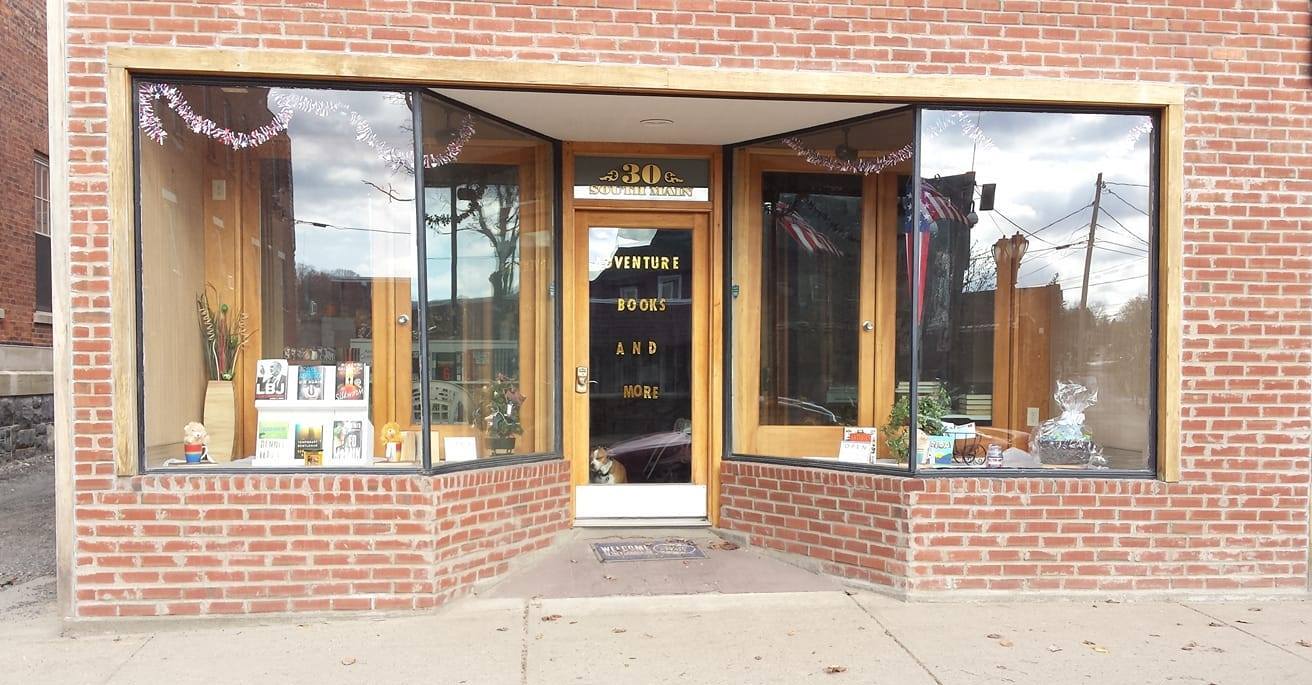

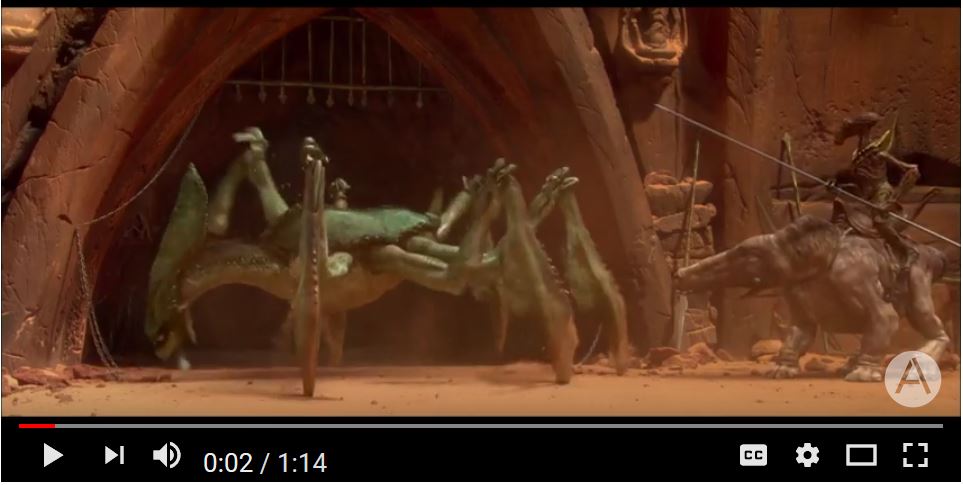 Moviemaking Magic of Star Wars: Creatures and Aliens
Moviemaking Magic of Star Wars: Creatures and Aliens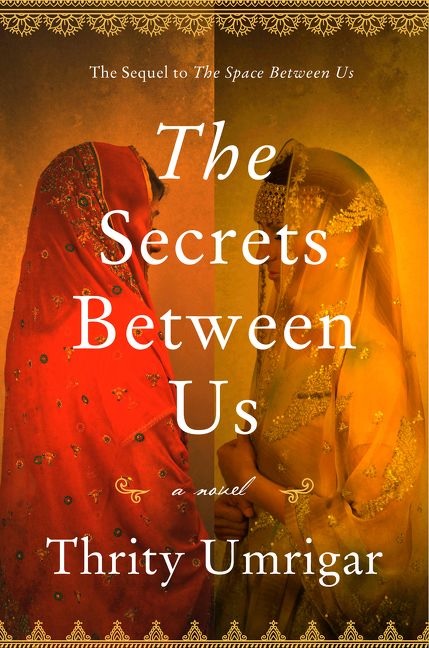 After nearly 20 years working as a maid for a wealthy Mumbai family, Bhima has been abruptly dismissed. Though she did the right thing in speaking out about a shameful situation, she is left with no income to support herself and her college-age granddaughter, Maya. As Bhima struggles to adjust to her new reality, she finds an unexpected business partner in Parvati, a sharp-tongued elderly woman who ekes out a living selling cauliflower at the nearby market. Both women have spent their lives on the knife edge of poverty. Their bitter experiences, professional and personal, and their fierce pride make them wary of trusting others, but they set up a vegetable stand together and gradually come to rely on one another. Thrity Umrigar's eighth novel, The Secrets Between Us, traces the intertwined journeys of Bhima, Parvati and their loved ones in acutely observed prose.
After nearly 20 years working as a maid for a wealthy Mumbai family, Bhima has been abruptly dismissed. Though she did the right thing in speaking out about a shameful situation, she is left with no income to support herself and her college-age granddaughter, Maya. As Bhima struggles to adjust to her new reality, she finds an unexpected business partner in Parvati, a sharp-tongued elderly woman who ekes out a living selling cauliflower at the nearby market. Both women have spent their lives on the knife edge of poverty. Their bitter experiences, professional and personal, and their fierce pride make them wary of trusting others, but they set up a vegetable stand together and gradually come to rely on one another. Thrity Umrigar's eighth novel, The Secrets Between Us, traces the intertwined journeys of Bhima, Parvati and their loved ones in acutely observed prose.